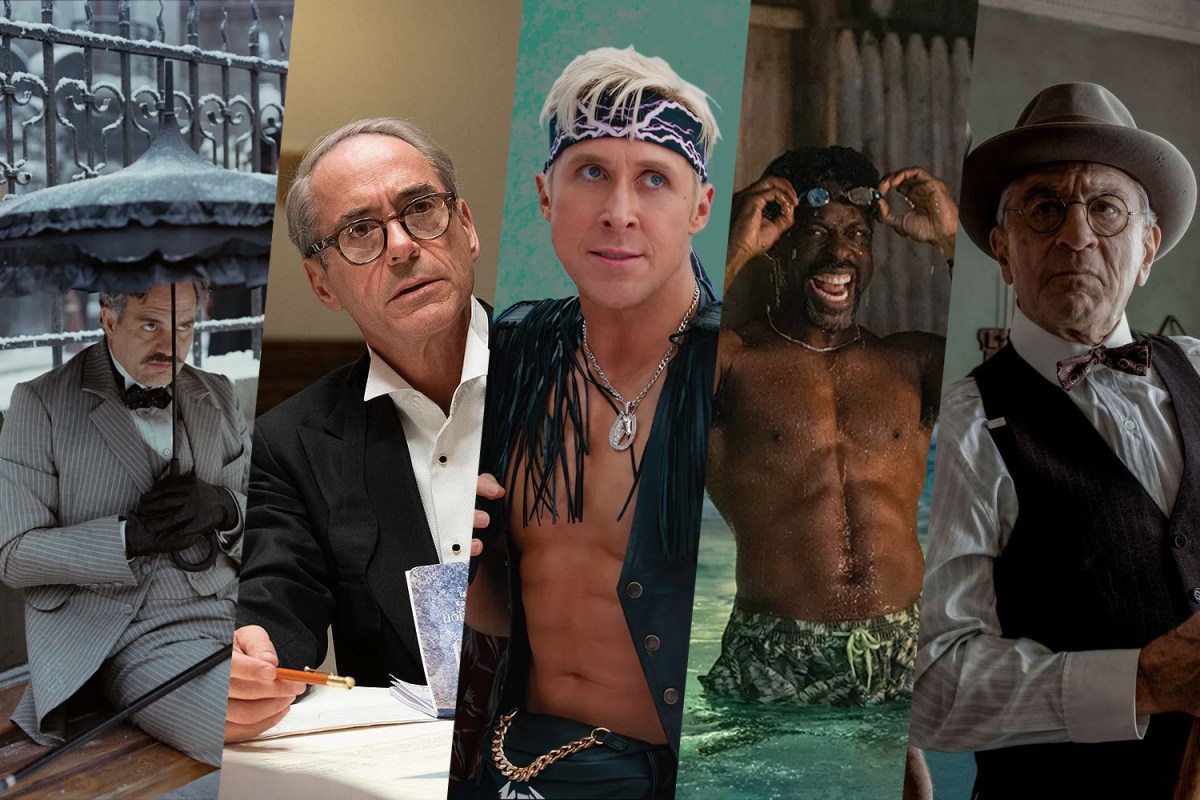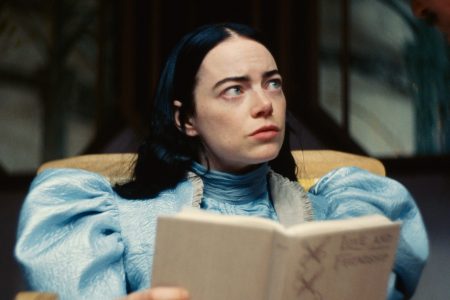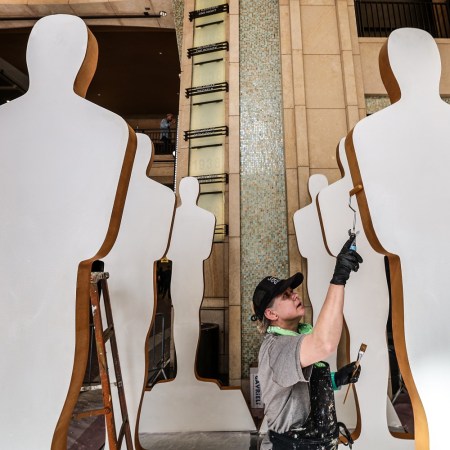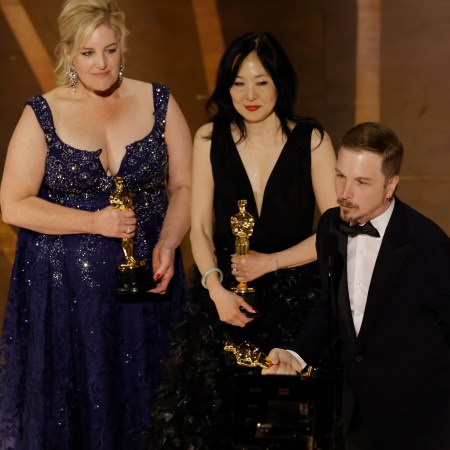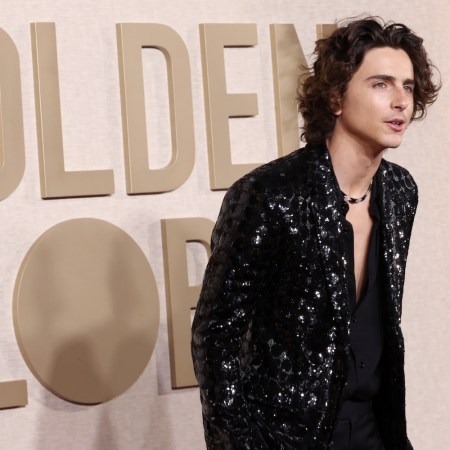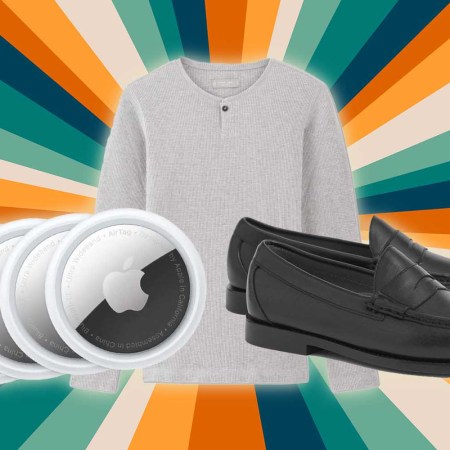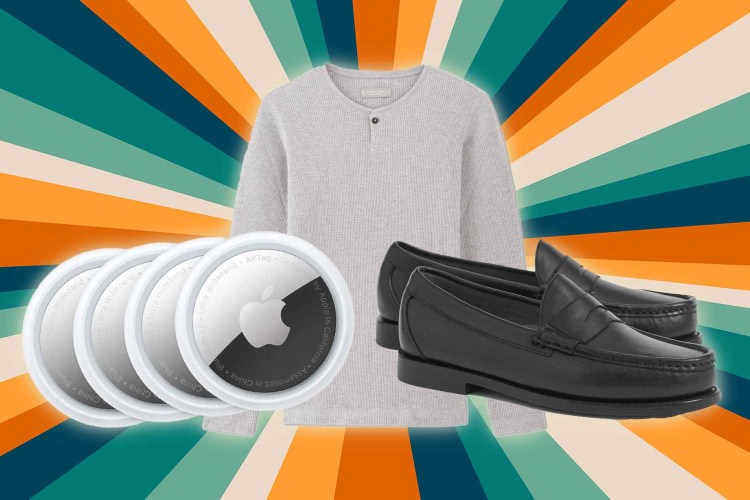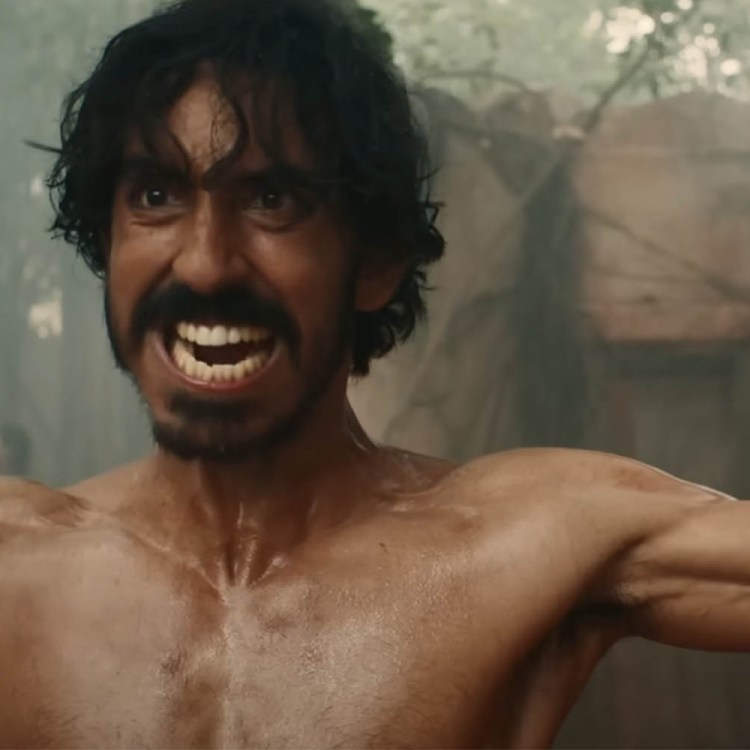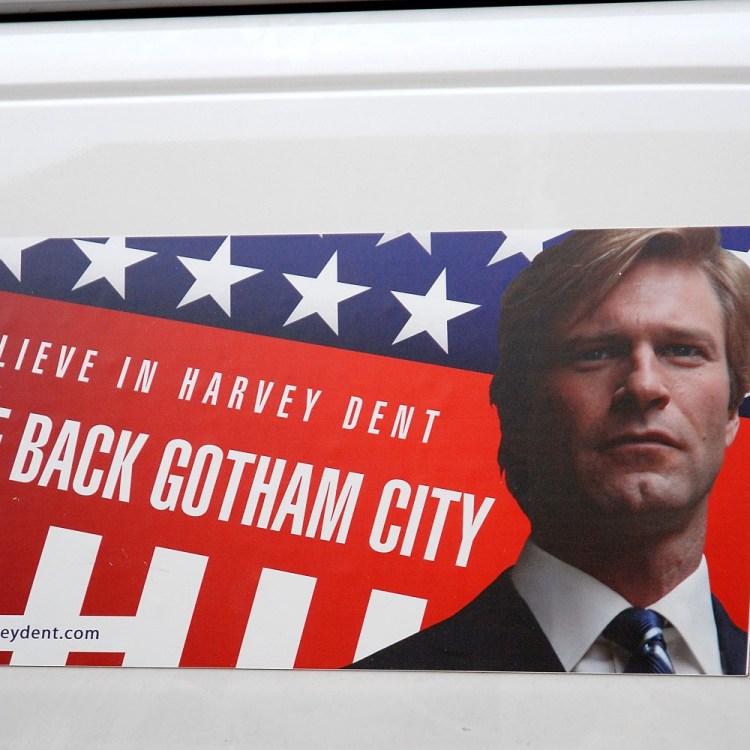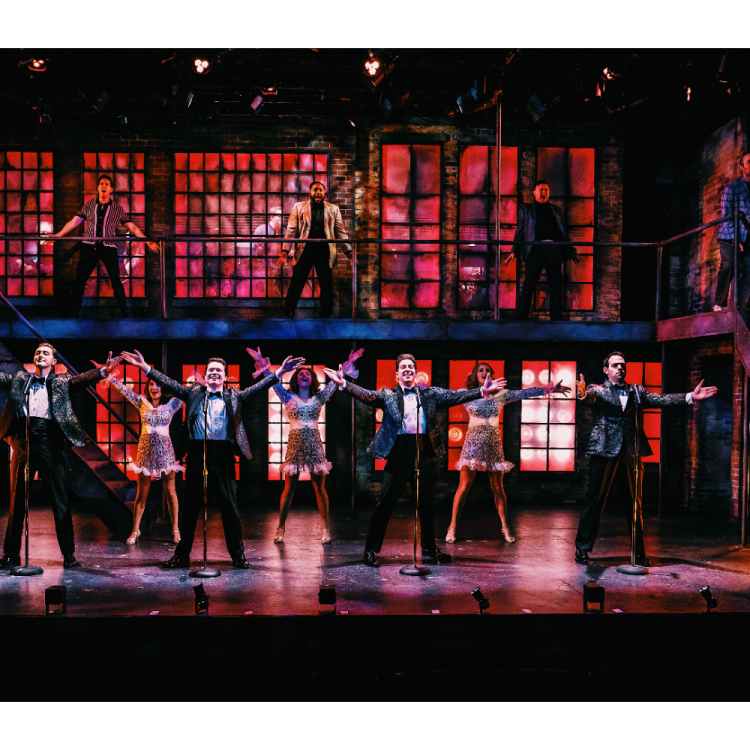All things considered, the Academy did pretty well this year. The nominations for the 96th Oscars, which will be handed out during a televised Hollywood ceremony this Sunday, are less embarrassing than usual. Some of that is the uncommonly strong crop of mainstream movies released in 2023; it’s harder to mess up, in that vintage AMPAS way, when the most award-friendly films are on the level of Oppenheimer or Poor Things. But credit where it’s due: A quick scan of the full list reveals several highly respectable lineups. Look at the Best Picture slate, which has a record three movies in a language other than English! Or a Visual Effects race that pits a frugally realized Godzilla against the jaw-dropping spectacle of an underrated sci-fi flop.
Still, there’s one Oscar category in particular that’s absolutely stacked with worthy nominees this year, and that’s Best Supporting Actor. Within this single competition, we have a reliable character actor finally being recognized for his scene-stealing vitality; a movie star going hilariously big in the biggest hit of the year; a screen legend tapping into a new kind of aged, insinuating menace; and two former Marvel company players emerging from the superhero trenches to rediscover their zeal for acting via respectively measured and flamboyant turns. Each of these five performers is doing some of the best work of his career. Each would make a great winner.
At this point, it seems pretty likely that Robert Downey Jr. will be the actual winner. His performance in Oppenheimer as backstabbing Washington official Lewis Strauss has already racked up numerous honors this awards season — all the necessary precursors, from the likes of BAFTA and the Screen Actors Guild, that usually signal an incoming invitation to the stage of the Dolby Theatre. Cynically, one could call his probable induction into the Oscars winning circle a belated reward for the decade-plus he spent goosing the American box office as Tony “Iron Man” Stark. Thank you for your multiplex service, the gold statuette will say. And welcome back to real movies.
Whatever the driving force of his sweep, it’s bracing to see Downey strip off the special-effects armor, along with the rapier wit he leaned so heavily upon during his 11 years of quip-firing Avengers duty. Strauss, as our frontrunner plays him, is an ingratiating D.C. hack — a guy plainly, painfully aware that he’s neither the smartest nor the most charismatic man in the room. Oppenheimer and its unexpected final hour of Beltway reckoning ends up pivoting around his petty grievance, and there’s a sly power to seeing the actor muzzle all his natural, silver-tongued charm to embody the epitome of vengeful inadequacy, his character marshaling his influence to try and bury a man who embarrassed him. Downey has never looked so humorless — which, yes, is a great subversion of the audience’s familiarity with his star persona. If we don’t see the knife coming, it’s because it’s Robert Downey Jr. wielding it.
Equally cast against type is his former Marvel costar, Mark Ruffalo, who’s done comedy before but never played a character as over-the-top as Poor Things’ Duncan Wedderburn. This lecherous dandy helps Emma Stone’s lab-made ingénue Bella Baxter liberate herself, sexually and otherwise … only to collapse into jealous, childlike petulance once she reaches for pleasures beyond him. Like Downey, Ruffalo gives us an imploding male ego. Unlike Downey, he plays it vaudeville huge, reveling in his lusty hedonism on the dance floor (this little move is almost Oscar-worthy on its lonesome) before doing his best Stanley Kowalski — sub the “S” for a “B” — outside the window of the free spirit who grows bored of Duncan’s possessiveness.
Emma Stone Is Extraordinary in “Poor Things”
Her role in the Frankenstein-inspired film is an obvious Oscar contenderWere this a subtlety contest, Ruffalo would come in last. But there’s value to jolting such an inspired satirical creation to life, especially given how in-sync poor, bellowing Duncan is with the pop-up-book exaggeration of Poor Things. Plus, it would be nice to see the Academy shake up its habit of neglecting comic brilliance, though of course it’s easier to get nominated for being funny in Supporting than Lead. (Just ask Margot Robbie). Anyway, Ruffalo is hilarious even when not dashing his dignity on the cobblestone with a full-blown sobbing jag. He scores huge laughs through reaction shots alone, including the unsettled look that passes across his face after Bella suggests that one-and-done orgasms are a design flaw of his gender.
The actor has stiff competition in the arena of playing humorously fragile men. After all, he’s up against Gosling’s peerless dollhouse himbo routine as the Ken to Robbie’s Barbie — probably the most widely beloved (and memed) comic performance of the year. As the internet has been quick to note, Gosling has been funny before, doing frazzled slapstick in The Nice Guys or obsessing over font in an ingeniously specific, Avatar-related Saturday Night Live sketch. But he really goes for it in Barbie, cheekily skewering his own heartthrob reputation with a movie-star caricature of aggrieved manhood.
The tightrope walk of the performance is how Gosling commits to the plasticity of Ken — his status as a beaming hunk of beefcake loyalty — without making him entirely one-note (or one-joke). A little symphony of insecurity plays out across his sheening features. And he’s the movie’s not-so-secret weapon, a spoonful of sugar to help Greta Gerwig’s miniature seminar on the patriarchy go down smoother. Some might even say he’s too good in the role: One concern that pinged around in the aftermath of Barbenheimer was that Ken shouldn’t be everyone’s favorite thing about a movie called Barbie. But that’s just a testament to how soulfully Gosling tackles broad shtick, lending extra dimension to a deliberately smoothed (and smooth-brained) character.
There’s arguably a similar issue with Sterling K. Brown’s sterling work in American Fiction: His scenes are so funny and magnetic and volatile — so real — that they make the ones he’s not in, especially the whole lit-world satire stuff, look thinner by comparison. Brown plays Cliff, the recently out-of-the-closet brother of Jeffrey Wright’s prickly writer Monk. The movie positions all the material involving Monk’s family as a nuanced alternative to the stereotypical depictions of Black life he ends up parroting with his accidental bestseller. But it’s the encounters between Cliff and Monk that most richly accomplish that goal. Again, maybe too richly: Every time the film returns to Los Angeles to escalate our hero’s literary lie, you can’t help but wish you were back in Boston, watching the brothers spar.
A lot of that is Brown. He’s been stealing scenes (and sometimes whole movies) for years now with his plugged-in personality and casual way with a line reading. In American Fiction, he rivals Gosling’s charm, tossing off filmmaker Cord Jefferson’s barbed zingers and even doing an antagonistic little imitation of Monk’s “Detective Dictionary” verbosity. Beyond the laughs, his chemistry with Wright is so easy and true that a whole family history opens up in the space between their dialogue. And that’s to say nothing of how much Brown tells us about Cliff across just a handful of scenes; it’s the mark of a first-rate supporting performance that you end up feeling like you really know a character you’ve only met for a few minutes of screentime.
If Brown essentially builds a whole person from scratch, Robert De Niro — the most seasoned of the category’s nominees, and the only Oscar winner among them — plays diabolically with the audience’s associations in Martin Scorsese’s hefty Killers of the Flower Moon. His William “King” Hale, wealthy rancher and fabled “friend of the Osage,” is a new specimen of American corruption and evil from a real authority on those. Rather than wear his cold-bloodedness on the surface, De Niro hides it under a veneer of smiling Southern folksiness. King is a new kind of scary for this Hollywood heavyweight: a force of cunning genocidal greed who sells himself as an ally, like a wolf licking his lips beneath sheep’s clothing.
It’s the latest evidence that De Niro has rediscovered his ferocious talent by rekindling his creative partnership with Scorsese — and by weaponizing his latter-day qualities in their new films together. While The Irishman channeled some of the checked-out sleepiness of De Niro’s lesser work into a portrait of damning moral absence, Killers finds him putting the grandfatherly twinkle of recent comedic and family-friendly fare into a dark new context. It’s easy to underrate a sturdy performance by a giant of the movies, especially this late into his career. But like the unscrupulous schemer he so persuasively portrays in this new epic, De Niro should never be underestimated.
So what do these five performances have in common, beyond looking like highlights of both the year in cinema and the filmographies of those delivering them? As the name of the category suggests, they’re all quintessential supporting turns — great pieces of acting in the orbit of stars, lifting up the material without stealing the spotlight. There are times when the Academy commits category fraud, filing a meaty leading performance alongside the work of actors with smaller, less central parts. But not this year: Even Gosling, for all his scenes in Barbie, has taken a role inherently subordinate to that of his unnominated costar. After all, she’s everything. He’s just Ken.
Oh, and there’s one other thing that could collectively be said of these nominees: It’d be a pleasure to see any of them climb that stage on Sunday. Is a five-way tie possible? If not, let the best man win — and maybe when he does win, let him mention Charles Melton in his speech. Great as this lineup is, it’s one May December performance short of perfection.
This article was featured in the InsideHook newsletter. Sign up now.
